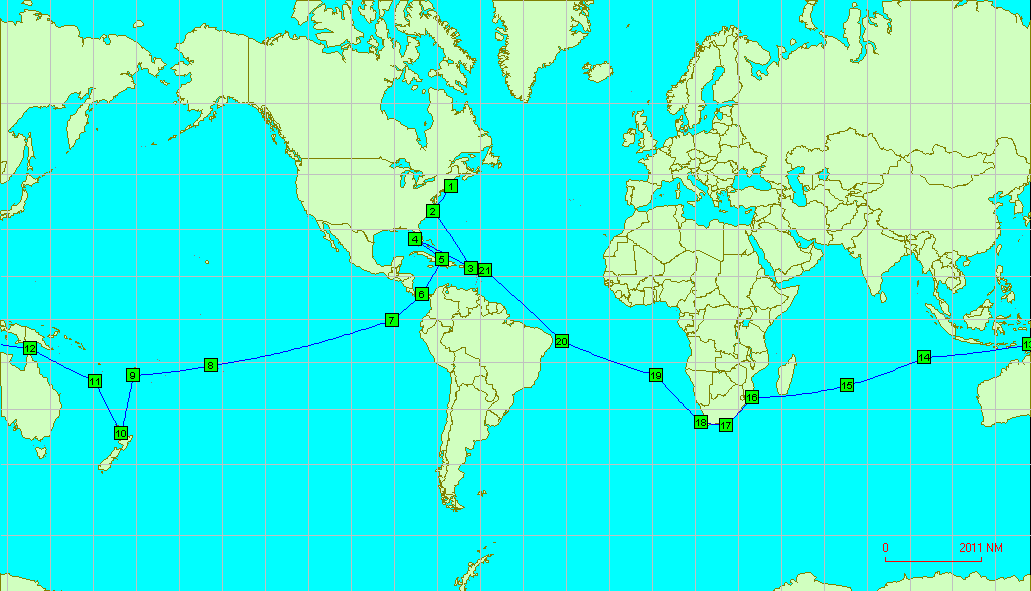The World Tour
9/27/2003 to 5/30/2008

Our original plan for
this circumnavigation is a west-about route via the Caribbean, Panama Canal,
South Pacific to New Zealand; then on to Australia and across the southern Indian Ocean around the Cape of
Good Hope, across the south Atlantic to Brazil and back to the Caribbean.
But as all sailors know, even the best laid plans are never written in
stone. So we will update this section as we go along whenever
possible. (Note: The numbers on the map do not correspond
to the chapters below).
Each area will be separated by "Chapters".
Hope you enjoy the trip....
Chapter 1 - Caribbean - 2003/2004 season
Chapter 2 - The Panama Canal - May 2005
Chapter 3 - The Galapagos Islands - May 2005
Chapter 4 - French Polynesia: Marquesas
Islands - June/July 2005
Tuamotu Archipelago - July 2005
Society Islands - August 2005
Chapter 5 - The Cook Islands: Palmerston Island
- September 2005
Chapter 6 - The Island of Niue - September 2005
Chapter 7 - The Kingdom of Tonga - October 2005
Chapter 8 - Fiji - November 2005
Chapter 9 - New Zealand - November 2005 to April 2007
Chapter 10 - New Caledonia - May 2007
Chapter
11 - Australia - June/July 2007
Chapter 12 - Cocos (Keeling) Islands - August 2007
Chapter
13 - Rodrigues Island - September 2007
Chapter 14 - Mauritius - September/October 2007
Chapter 15 - Reunion Island - October 2007
Chapter 16 - South Africa - November 2007 to
January 2008
Chapter 17 - The Atlantic Ocean Passage - January
2008 to March 2008
Chapter 18 - The Circumnavigation is Complete -
April 2008 to May 2008
Return to
top of page
